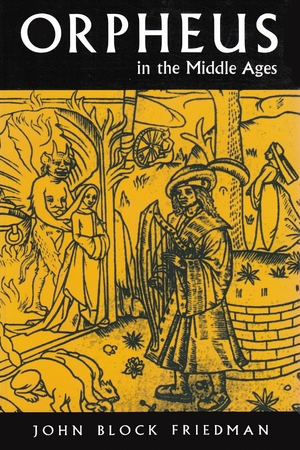"At the edge of the world beyond the sea, they lived in mountains and swamps, deserts and dank spots, in places like India and Africa, habitats hostile to civilized society but home to the 'monstrous races'—deformed species of men. . . . With droll style and broad erudition, Friedman has produced a livdy chronicle of these curious creatures. But his book is not just about them; it is also about our enduring inability to view other cultures without prejudice."—Newsweek
"An extremely well-researched discussion of the legendary and for the most part actual races, from Amazons to Cyclops, who influenced European Christian thought and culture in the Middle Ages. . . . Friedman offers valuable insights into the growth not only of the dominative notion of alien and subject races under the conquistadors and in the age of exploration, but of our own present-day understanding of the self and the other, conceived in terms of nations."—The Times Higher Education Supplement
Description
Beyond the boundaries of the known Christian world during the Middle Ages, there were alien cultures that intrigued, puzzled, and sometimes frightened the people of Europe. The reports of travelers in Africa and Asia revealed that “monstrous” races of men lived there, whose appearance and customs were quite different from the European norm. This book examines the impact of these races upon Western art, literature, and philosophy, from their earliest mention until the age of exploration.
Friedman furnishes a descriptive catalog of the races, most of which were real, geographically remote peoples, some of which were fabled creatures that served as symbols. He traces the evolution of European attitudes toward them, with particular emphasis on the high Middle Ages, when they seem most strongly to have captured the Western imagination. Ranging through literature, the arts, cartography, canon law, and theology, he considers the widely varying ways in which Christians viewed and depicted strange races of men.
Finally, he examines transformations in European consciousness brought about by the discoveries of the exotic peoples of the Americas. Whatever their form—pygmy, giant, hirsute cave—dweller, cyclops, or Amazon-the
monstrous races clearly challenged the traditional concept of man in the Christian world scheme. It is the medieval thinking about this challenge that Mr. Friedman addresses in this revealing account.
About the Author
John Block Friedman is visiting professor of English at Kent State University, Salem, and professor emeritus of the University of Illinois at Urbana-Champaign. He is the author of Orpheus in Middle Ages also available from Syracuse University Press.


